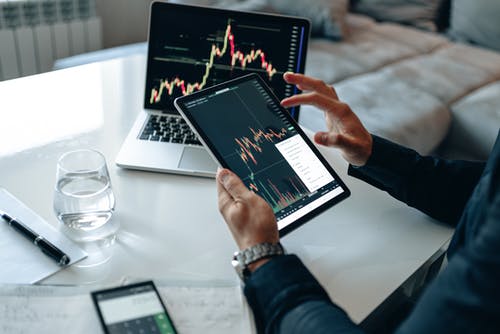Mutual fund
29 november 2021

The name itself says the meaning - a fund that raises capital from many investors, which is why it is called mutual. This capital is subsequently the mutual fund invests in a portfolio of shares, bonds, cash and cash equivalents (often referred to as cash for short) and alternative investments.
The mutual fund is managed by a portfolio manager who decides where to invest and what part of the portfolio to invest in each financial instrument. When investing, the portfolio manager follows a predetermined investment policy (also called strategy), which each investor in the fund must be familiar with before investing. This is mandatory to reassure the investor that the investment policy of this mutual fund best meets his expectations and goals. Full information is contained in the documents of the mutual fund. The assets (portfolio) of the mutual fund are maintained with a depositary. This means that they are separated from the management company's own assets and cannot be the subject of claims by persons to whom the management company may have liabilities.
The mutual fund has a number of advantages for investors:
- It allows small investors to buy a ready-made portfolio that is managed by professionals. Often investors cannot spread the risk well enough due to the smaller amounts they invest (they are insufficient to buy enough and different types of financial instruments)
- They do not require experience, knowledge and time to manage our investment
- Portfolio managers and financial analysts monitor the markets every day and have the necessary experience, knowledge and time to strive to choose those investments that they consider promising, thus eliminating the need for the individual investor to commit to this.
- They offer different investment policies and adhere to them so that investors feel comfortable and do not have to worry about taking unnecessary risks.
- High liquidity - in case of need to sell the investment and receive the accumulated funds, the investor must submit a redemption order and then receive the funds in his bank account within the period specified in the documents of the mutual fund
- Investors use a number of safeguards against bankruptcy of the management company
Among the disadvantages of the mutual fund are:
- The mutual fund has a management fee, the proceeds of which go to cover the costs of the fund (brokerage services, compensation of its employees, costs of depository services, etc.)
- The indicative investment horizon (recommended horizon) is often longer than 2 years
- When selling (distributing) mutual funds, the distributor usually deducts a fee for the purchase (subscription) of shares of the mutual fund. This makes frequent trading (investing with frequent changes in the fund in which we invest) inefficient for investors, which requires the recommendation to adhere to the indicative investment horizon of the fund and to avoid frequent changes.
Example:
Ivan Petrov realizes that by keeping his money on deposit he does not receive any interest, and taking into account the effect of inflation, he actually loses. He begins to look for a solution to what to do so as to protect himself from this serious problem. He focuses on a mutual fund because he does not have the necessary knowledge, time and experience to invest in the capital markets on his own. Looking at his savings, he sees that he has BGN 25,000 on deposit. He estimates that he will probably need BGN 5,000 for the planned renovation of his apartment, which he will do in 1 year. He estimates that he will not need the remaining BGN 20,000 in the next 4 years. Since investing is something new to Ivan, he prefers to consult an expert and get investment advice. After the expert makes sure that he was aware of Ivan's goals and expectations, he recommended that Ivan leave BGN 5,000 in deposit in order to cover the costs of the planned renovation, and to invest the remaining BGN 20,000 in a mutual fund, which aims to invest 70% in bonds and 30% in stocks. Before proceeding with the investment, the Expert acquaints Ivan with the investment policy of the fund, its risk rating and the indicative investment horizon. Also, prior to the investment, Ivan receives detailed information on the investment costs, including the purchase (subscription) fee and the annual fund management fee.



























